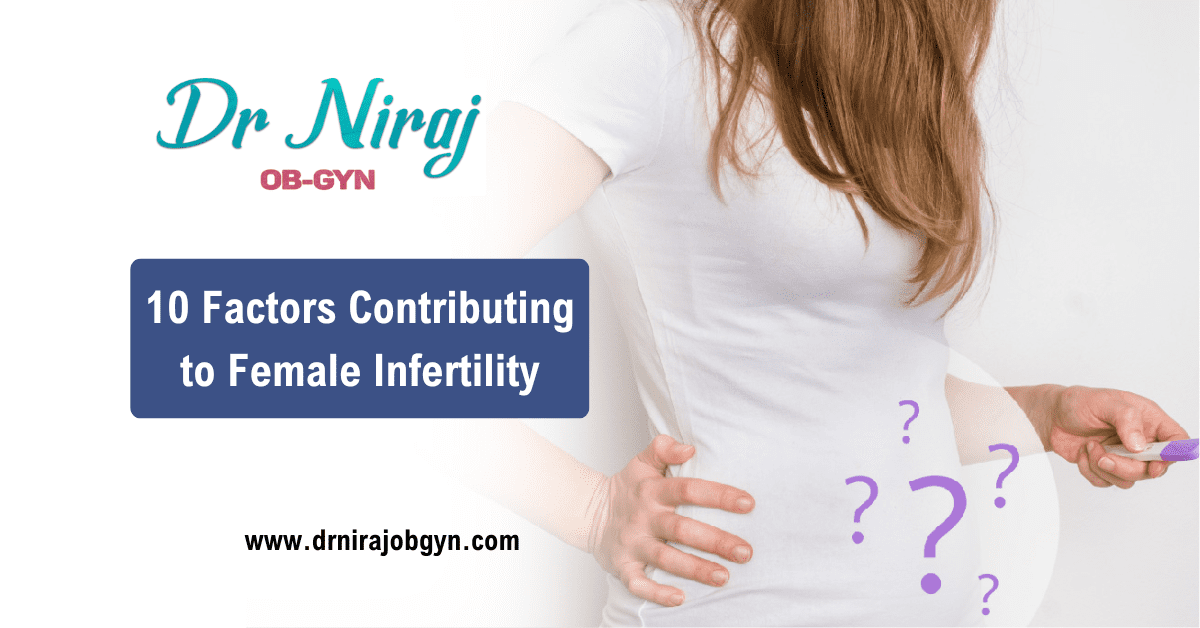
10 Factors Contributing to Female Infertility
Female Infertility: Every woman aspires to experience motherhood, yet various health issues can sometimes impede this journey. Among these challenges, infertility stands out as a significant concern.
Navigating the complexities of infertility often proves emotionally taxing, but knowledge serves as a potent tool in the pursuit of parenthood. Infertility encompasses a range of hurdles that can affect women irrespective of age or background. From hormonal imbalances and reproductive disorders to lifestyle choices and environmental factors, each aspect plays a role in infertility.
Whether you’re personally grappling with infertility or simply curious to learn more, continue reading. This article delves into the intricacies of infertility, providing a detailed exploration of its causes. So, without delay, let’s delve into the discussion!
Top 10 Factors Contributing to Female Infertility
Understanding the underlying causes of infertility in women is crucial. Here’s a breakdown of the primary factors:
1. Polycystic Ovary Syndrome (PCOS):
PCOS, a hormonal imbalance, disrupts ovulation, leading to irregular menstrual cycles and difficulties conceiving. Its prevalence is increasing among women today.
2. Age:
As women age, both the quantity and quality of eggs decline, significantly reducing fertility, especially after 35, though exceptions exist.
3. Irregular Menstrual Cycles:
Irregular or absent periods may signify hormonal imbalances, complicating conception. Medication can often address this issue.
4. Endometriosis:
This condition involves uterine lining tissue growing outside the uterus, causing inflammation and scarring that can block fallopian tubes, impeding fertilization.
5. Fallopian Tube Blockage:
Blockages or damage in fallopian tubes hinder sperm-egg meeting, often due to infections, surgery, or conditions like pelvic inflammatory disease.
6. Uterine Issues:
Uterine abnormalities like fibroids, polyps, or congenital malformations can hinder embryo implantation or cause miscarriages.
7. Ovulation Disorders:
Disruptions in ovulation-inducing hormonal signals, as seen in conditions like hypothalamic amenorrhea or hyperprolactinemia, can lead to infertility.
8. Thyroid Disorders:
Thyroid imbalances, particularly hypothyroidism, can affect hormone levels and menstrual regularity, impacting fertility.
9. Excessive Exercise or Low Body Weight:
Intense physical activity and low body weight can disrupt hormonal balance, causing irregular cycles and reduced fertility.
10. Lifestyle Factors:
Smoking, excessive alcohol consumption, drug use, and high-stress levels can all negatively affect fertility by disrupting menstrual cycles and ovulation.
Also Read: Ectopic Pregnancy Symptoms and Signs
FAQ: 10 Reasons for Female Infertility
What are the common causes of infertility in women?
Infertility in women can be caused by various factors such as hormonal imbalances, ovulation disorders, structural issues in the reproductive organs, age-related decline in egg quality, and certain medical conditions like polycystic ovary syndrome (PCOS) or endometriosis.
How does age affect a woman’s fertility?
As women age, their fertility declines, primarily due to a decrease in the number and quality of eggs. After the age of 35, fertility starts to decline more rapidly, making it harder to conceive naturally. Advanced maternal age also increases the risk of pregnancy complications and chromosomal abnormalities in the fetus.
Can lifestyle factors contribute to female infertility?
Yes, lifestyle factors such as smoking, excessive alcohol consumption, obesity, poor nutrition, and high levels of stress can adversely affect a woman’s fertility. These factors can disrupt hormonal balance, interfere with ovulation, and impair reproductive function, making it harder to conceive.
What role do ovulation disorders play in female infertility?
Ovulation disorders, such as polycystic ovary syndrome (PCOS) and hypothalamic dysfunction, can disrupt the normal release of eggs from the ovaries, leading to irregular or absent menstrual cycles and difficulty in conceiving. Proper diagnosis and management of these conditions are essential for improving fertility outcomes.

